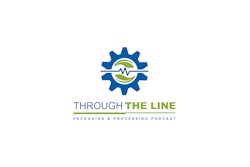This content was written and submitted by the supplier. It has only been modified to comply with this publication’s space and style.
AUDIENCE: Oncology, Endocrine, Cardiovascular
ISSUE: Gonadotropin-Releasing Hormone (GnRH) agonists will have new safety information added to the Warnings and Precautions section of the drug labels. This new information warns about increased risk of diabetes and certain cardiovascular diseases (heart attack, sudden cardiac death, stroke) in men receiving these medications for the treatment of prostate cancer.
BACKGROUND: GnRH agonists are approved to treat the symptoms (palliative treatment) of advanced prostate cancer. The benefits of GnRH agonist use for earlier stages of prostate cancer that have not spread (non-metastatic prostate cancer) have not been established. FDA's notification to manufacturers of GnRH agonists to add this safety information is based on the Agency's review of several published studies. Most of the studies reviewed by FDA reported small but statistically significant increased risks of diabetes and/or cardiovascular events in patients receiving GnRH agonists.
RECOMMENDATIONS: Healthcare professionals should evaluate patients for risk factors for these diseases and carefully weigh the benefits and risks of using GnRH agonists before determining appropriate treatment for prostate cancer. Patients who are receiving treatment with GnRH agonists should undergo periodic monitoring of blood glucose and/or glycosylated hemoglobin (HbA1c). Healthcare professionals should also monitor patients for signs and symptoms suggestive of development of cardiovascular disease and manage according to current clinical practice.
ISSUE: Gonadotropin-Releasing Hormone (GnRH) agonists will have new safety information added to the Warnings and Precautions section of the drug labels. This new information warns about increased risk of diabetes and certain cardiovascular diseases (heart attack, sudden cardiac death, stroke) in men receiving these medications for the treatment of prostate cancer.
BACKGROUND: GnRH agonists are approved to treat the symptoms (palliative treatment) of advanced prostate cancer. The benefits of GnRH agonist use for earlier stages of prostate cancer that have not spread (non-metastatic prostate cancer) have not been established. FDA's notification to manufacturers of GnRH agonists to add this safety information is based on the Agency's review of several published studies. Most of the studies reviewed by FDA reported small but statistically significant increased risks of diabetes and/or cardiovascular events in patients receiving GnRH agonists.
RECOMMENDATIONS: Healthcare professionals should evaluate patients for risk factors for these diseases and carefully weigh the benefits and risks of using GnRH agonists before determining appropriate treatment for prostate cancer. Patients who are receiving treatment with GnRH agonists should undergo periodic monitoring of blood glucose and/or glycosylated hemoglobin (HbA1c). Healthcare professionals should also monitor patients for signs and symptoms suggestive of development of cardiovascular disease and manage according to current clinical practice.
Companies in this press-release





















